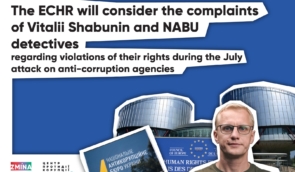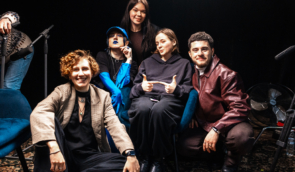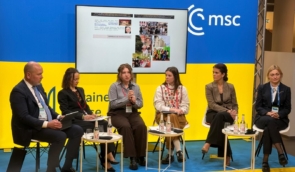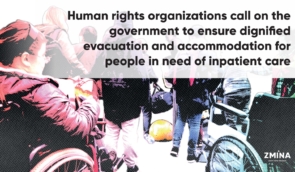Ukrainian human rights defenders talk in Czech Republic about problems, consequences of occupation of Crimea with journalists, Czech senators
The biggest challenges of the occupation of Crimea and the efforts the international civil society can make were discussed during a press conference in Prague on October 23. The event was organized by the Czech NGO Nesehnutí and the Crimea Platform Expert Network ahead of the Second Parliamentary Summit of the International Crimea Platform, which took place in Prague on October 24.
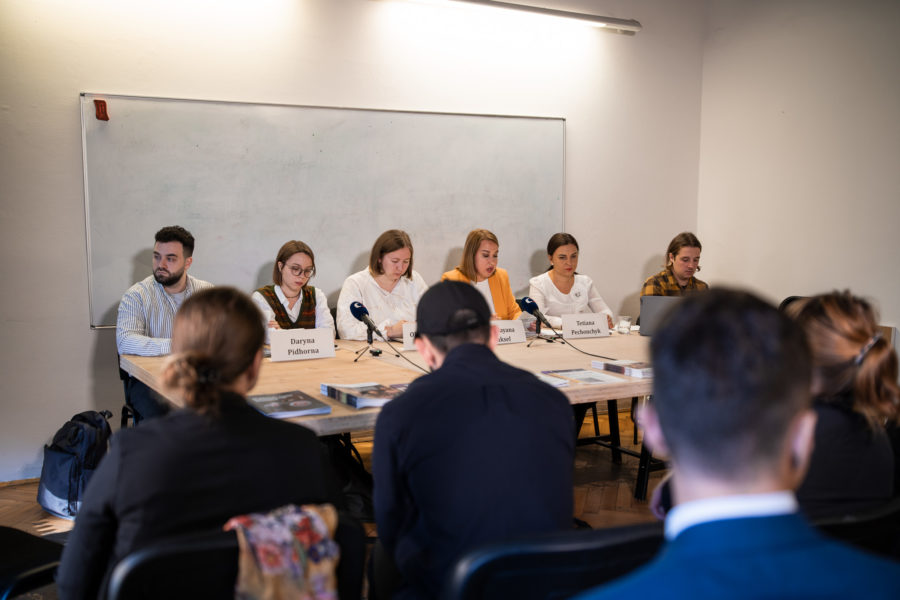
Olha Skrypnyk, head of board of the Crimea Human Rights Group and co-coordinator of the Crimea Platform Expert Network, spoke about typical violations of justice in the territory of occupied Crimea:
“All Crimean practices of persecution, deportation of children, forced imposition of passports, illegal mobilization, prohibition of freedom of speech, destruction of Ukrainian identity are now used in the newly occupied territories. But on a new scale and with increased brutality, including the killing of thousands of civilians. In the newly occupied territories, in particular in Kherson and Zaporizhzhia regions, people are kidnapped by the Russian military or the Russian FSB, then held for some time in places of detention and subjected to torture. Many civilians died after being tortured. Some of them are taken to Crimea where they are tortured by the FSB again.”
She added that people could be imprisoned in Crimea for many ridiculous reasons, for example, for singing Ukrainian songs or posting something like “Crimea is Ukrainian “, “Stop the war”, etc. on social networks.
“It is crucial to create an effective international mechanism for identifying civilian hostages, free them and return them to Ukraine-controlled territory,” she concluded.
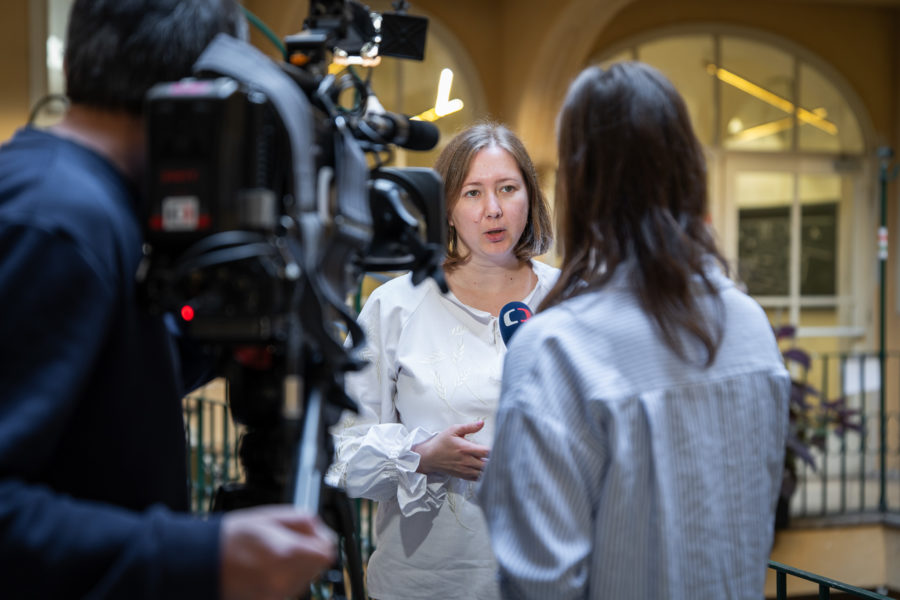 Olha Skrypnyk
Olha SkrypnykAccording to the Crimean Human Rights Group data, at least 173 political prisoners remain in pre-trial detention centers in Crimea and Russia. Many of them are victims of trumped-up cases – elderly people and people with disabilities or serious illnesses who need proper treatment which they do not receive. Tetiana Pechonchyk, head of board of the Human Rights Center ZMINA, representative of the Crimea Platform Expert Network, Ukrainian human rights defender, told about this: “People are held in harsh conditions, they are not allowed to sit or lie down, they are constantly tortured. For example, athlete Kyrylo Barannyk was kidnapped and tortured with electric shocks. We call for international sanctions against those involved in the inhumane treatment of detainees, we have a list of these people.”
Another topic that is less talked about, but no less important, is the occupiers’ crimes against cultural heritage and violations of people’s cultural rights. This problem was highlighted by Daryna Pidhorna, legal expert at the Regional Center for Human Rights, another NGO that documents crimes committed in Crimea.
“Cultural heritage is an integral part of security, stability, socio-economic and cultural development of any state. However, the Russian Federation deliberately violates the norms of international law and implements a state policy in the occupied territories of Ukraine aimed at destroying the cultural heritage of Ukraine,” Pidhorna said.
The expert underscored: Russia annually conducts about 20-40 illegal archaeological excavations, during which the Russians steal and destroy thousands of Ukrainian cultural values. Some of them move to the territory of Russia, where they disappear forever. “In cooperation with Ukrainian government agencies, we investigate crimes against culture and also try to find our property through the portal, which we launched together with the National Agency on Corruption Prevention. We call on the international community to support Ukraine in its efforts to protect our Ukrainian culture, history and future, as well as to widely highlight these crimes of the Russian Federation against our culture,” Pidhorna added.
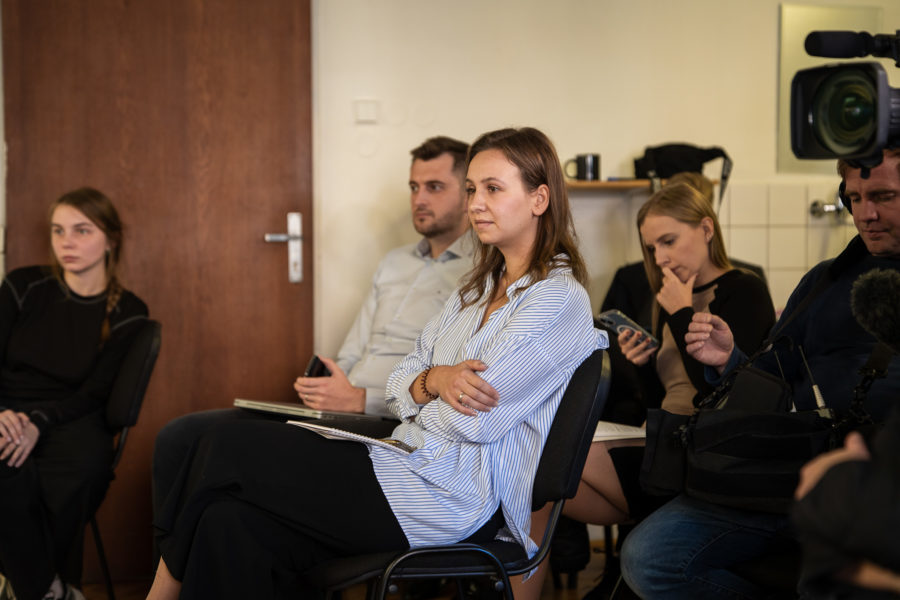
Gayana Yuksel, associate professor of the Department of Journalism of the Institute of Philology and Journalism of the Volodymyr Vernadsky Taurida National University (Kyiv), representative of the Mejlis of the Crimean Tatar People, presented information about the forced transformation of the media landscape after the occupation of Crimea: “The consequences of the occupation in the information sphere are widely known. Among them: mythologizing and distortion of history, presentation of Crimea as part of Russia; militarization of consciousness, especially of children, convincing them that they should grow up, fight and die for their homeland; demonization of Ukraine and calls for the destruction of Ukraine. In Crimea, they fight against any mention of Ukraine: Ukrainian symbols, songs, references are banned. Crimea became a small USSR of 1937, where denunciations flourished. We have to be prepared for different scenarios. One of them is the complete destruction of the infrastructure, communications, material and technical base for the normal functioning of any institutions, not only mass media, but any institutions, including the government. In the early period, Ukraine must be ready to work in these extraordinary conditions.”
Arie Mora, communications manager at the Ukrainian Legal Advisory Group (ULAG), noted that Ukrainian experts should not limit their attention only to what happened after February 24, 2022, but rather include all events since 2014: “This is especially relevant for Crimea where the conflict started and atrocities have taken place over the past nine years. While the crime of aggression is a clear gap in accountability that needs to be filled, it is important to assess how effectively all other serious crimes are prosecuted, and whether special mechanisms or a tribunal should be able to prosecute them, so as not to leave several more gaps unaddressed.”
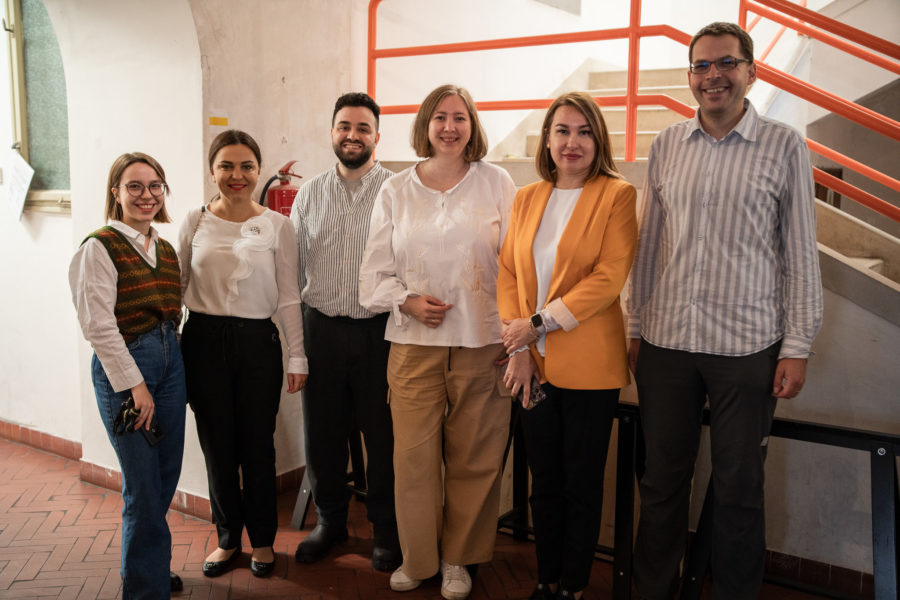
Mora also said that some steps for better justice should be taken not only by international institutions, but also by the Ukrainian government: “Ukraine should ratify the Rome Statute. The international community, in particular the Czech Republic, should be more persistent in its calls for the Ukrainian government to do so. This would improve Ukraine’s domestic system, as well as strengthen the International Criminal Court, which would benefit all victims around the world.”
In addition, a separate meeting of human rights defenders and relatives of Crimean political prisoners was held with Czech Parliament members Marek Hilšer and Martin Exner, during which the situation in Crimea and the actions necessary to step up sanctions pressure on human rights violators were discussed.
Head of Human Rights Centre ZMINA Tetiana Pechonchyk, present at the meeting, spoke about increasing pressure and repression in Crimea. According to her, the number of political prisoners after the beginning of the Russian full-scale invasion of Ukraine has grown by a third and reached at least 180 people. Moreover, most of them have been convoyed to penal facilities and pre-trial detention centers in the territory of the Russian Federation, which is a violation of international humanitarian law. According to the human rights activist, 50 Crimean political prisoners need medical attention, and two of them — Kostiantyn Shyring and Dzhemil Hafarov — already died in prison in February of this year due to lack of proper treatment.
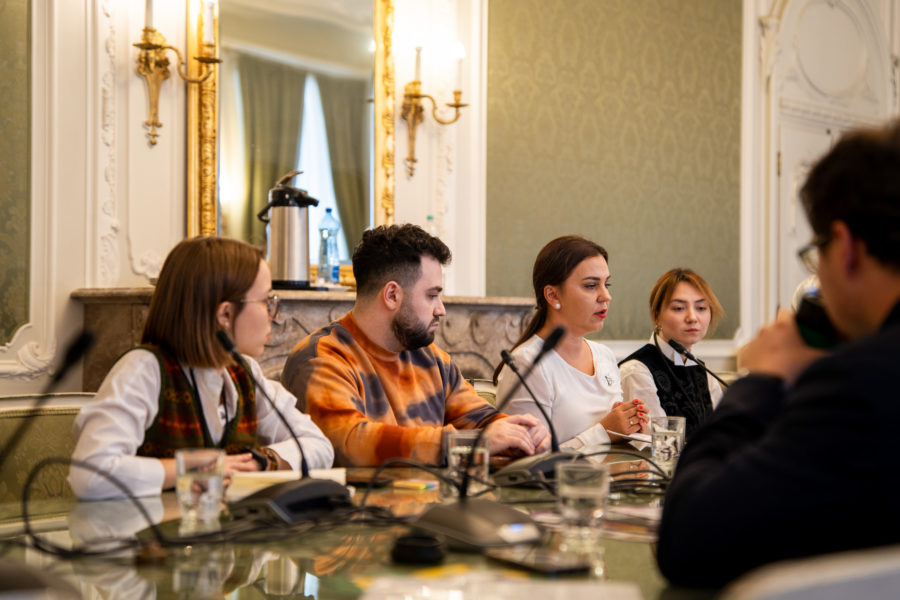
Pechonchyk noted that the situation was dangerous for 21 political prisoners who had chronic diseases exacerbated, disabilities or were elderly people who received long terms. She gave the Czech Parliament representatives the information about those involved in the prosecution of Crimean political prisoners and the failure to provide them with medical care and called on the Czech Republic to include these persons in the sanctions lists at the national and EU levels.
Photo credit: Andrea Špaková
If you have found a spelling error, please, notify us by selecting that text and pressing Ctrl+Enter.

